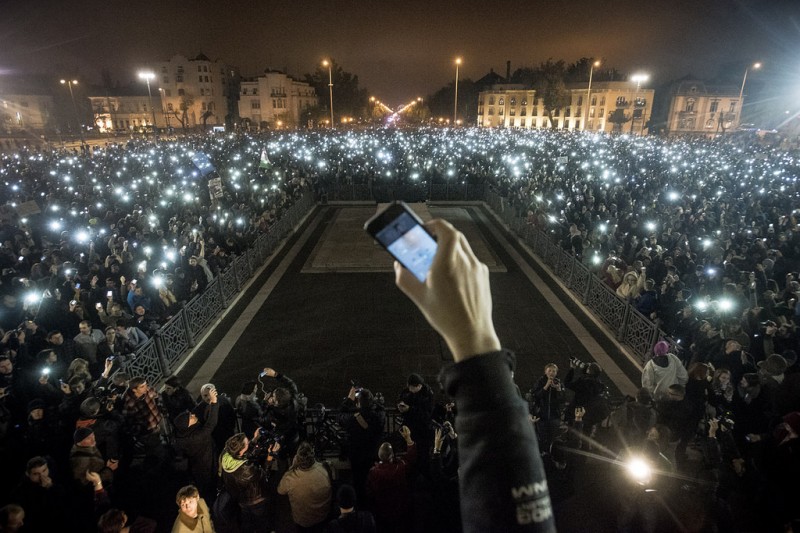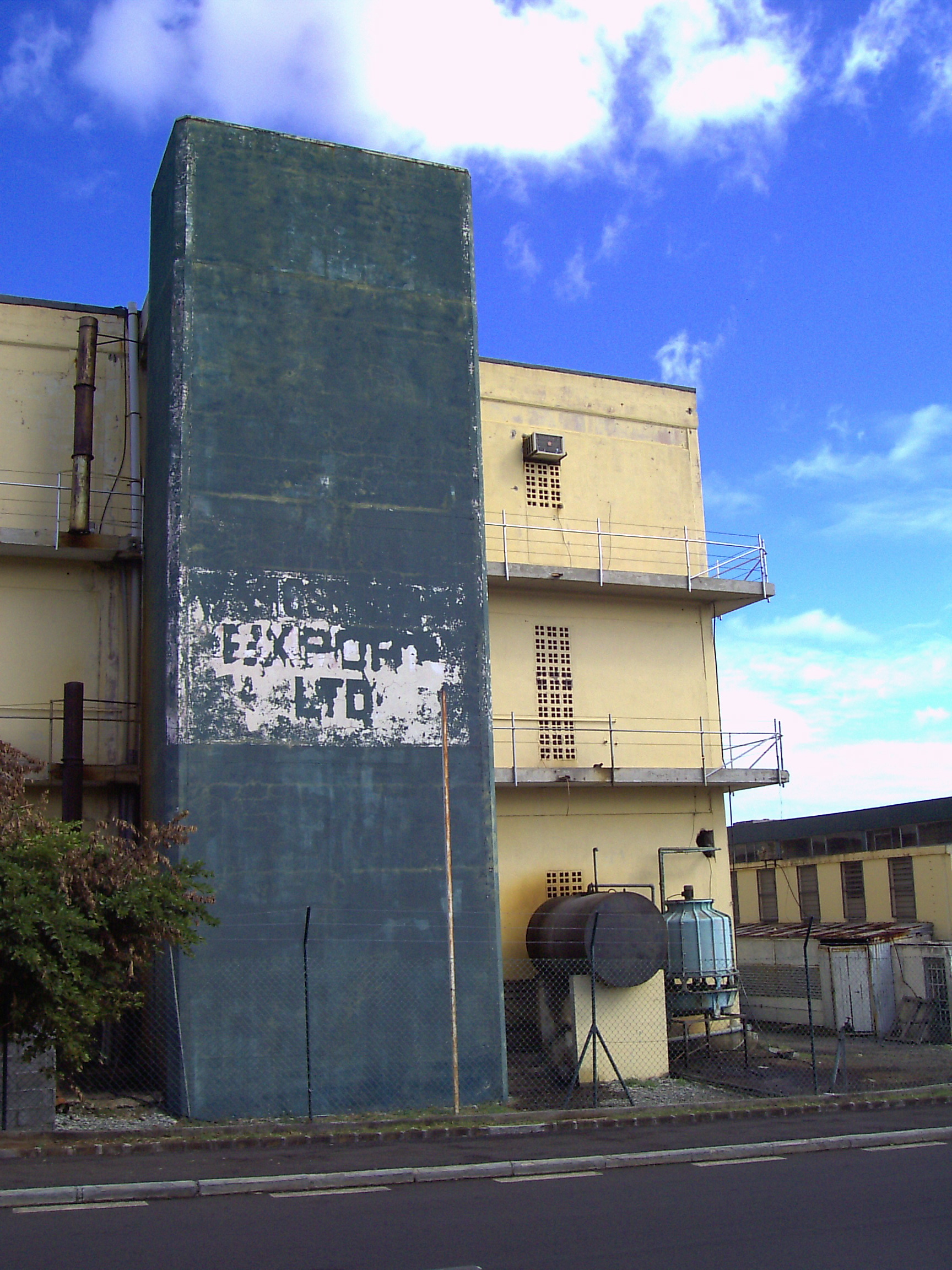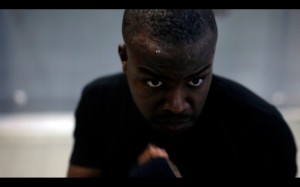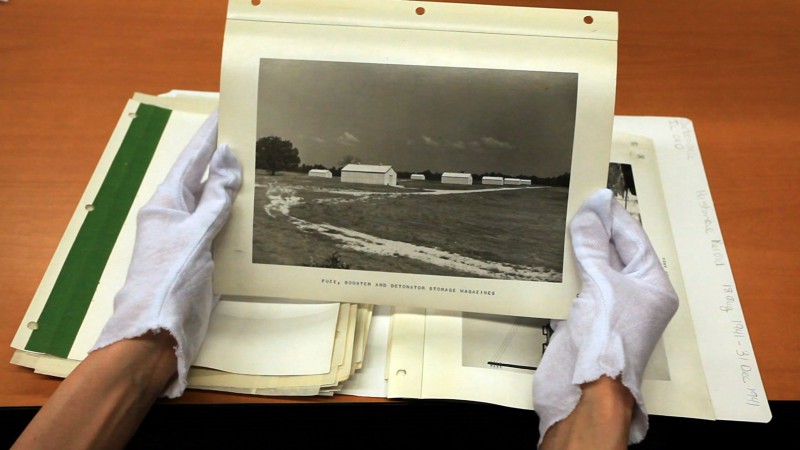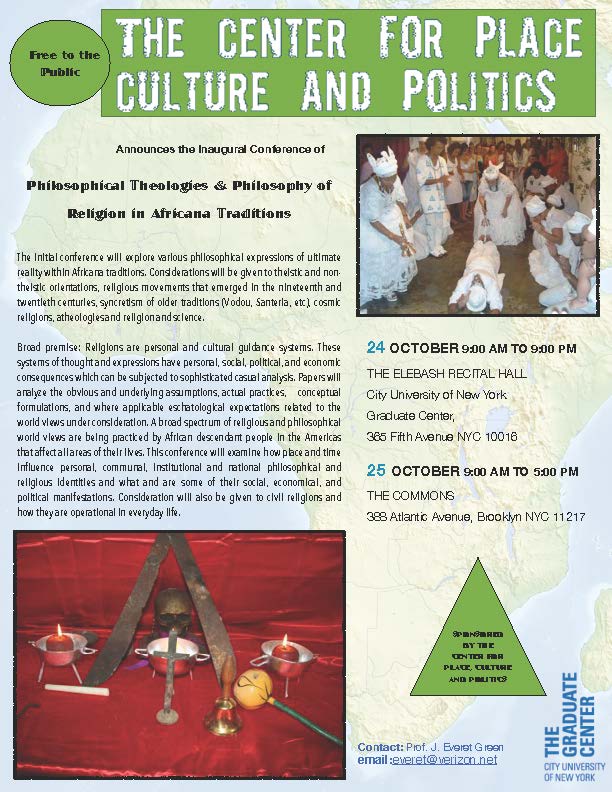Global Crisis, New Mobilizations, and the Fate of Democracy: a reconsideration of notions from a world-systems perspective on post-socialism
12/08/2014
6:30 pm - 8:30 pm
Sociology Lounge, Room 6112
Global Crisis, New Mobilizations, and the Fate of Democracy: a reconsideration of notions from a world-systems perspective on post-socialism
A discussion with Agnes Gagyi
Monday December 8
From 6:30 to 8:30 p.m.
Sociology Lounge
New ‘global’ mobilizations linked to the economic crisis are frequently interpreted in the framework of a decline of representative democracy, and the consequent threats and promises of populism and participation. That framework tends to brace together mobilizations in different positions in global hierarchies. Agnes Gagyi’s, coming from a world systems perspective, is that this gesture implies an universalization of the democratic experience of core countries, and hides rather than illuminates the global social dynamics connected to the movements. To support that argument, Gagyi will offer a non-core perspective on democratization and recent movements for democracy, from post-socialist Eastern Europe.
Agnes Gagyi is a social movements researcher with a background in social anthropology and political economy. She writes on Eastern European politics and social movements in a long-term global historical perspective, inspired by world-systems analysis. She received her PhD in 2011 from the University of Pécs, is Adjunct Professor at the Eszterházy Károly College, Eger. She is presently carries out post-doctoral research at George Mason University, supported by a Fulbright grant, entitled “The Transnational History of Contemporary Hungarian Politics and Social Movements”.
This event is cosponsored by the Center for Place, Culture and Politics and the Department of Anthropology, Graduate Center, CUNY, and LeftEast (http://www.criticatac.ro/lefteast/)
Bridging Resistance: U.S. Militarism in Asia-Pacific and NYC
12/05/2014
6:30 pm - 8:30 pm
Room 6112
Asia Pacific Peoples’ Solidarity presents an international conference and multimedia event with activists and organizers from South Korea, Japan, and the Philippines, and New York City organizing around the issue of US bases in the Asia Pacific region and US militarism.
Friday December 5, from 6:30-8:30 P.M.
Sociology Lounge RM 6112, CUNY Graduate Center
Peoples’ resistance to militarism in the Asia-Pacific region is growing as the US military increases its presence under the auspices of the so-called “Asia Pivot”. At the same time, communities in the US, particularly in New York City, increasingly face a rapidly militarized and violent police force in our neighborhoods, streets, and schools.
Hear from activists from South Korea, Japan, the Philippines, and New York City share stories and short films on peoples resistance against US militarism. Discuss how we can strengthen our solidarity and bridge our struggles for peace.
Speakers:
Ko Youkyoung (International Women’s Network Against Militarism, South Korea) is a long time peace activist in South Korea as the Former Director of the National Campaign for Eradication of Crimes by U.S. Troops in Korea and member of the Korean Women’s Network against Militarism, SAFE-Korea. She is also a member of the PyeongTaek Peace Center.
Raymond Palatino (BAYAN, Philippines) is an activist and writer in the Philippines. He’s the Southeast Asia Editor in the Global Voices and contributor to the ASEAN Beat of the Diplomat magazine. He’s also the chairperson of Bagong Alyansang Makabayan (BAYAN) Metro Manila.
Kozue Akibayashi (Women’s International League for Peace and Freedom, Japan) is an activist and researcher on gender and peace. She has researched on Okinawa Women Act Against Military Violence, and has worked on building transnational networks of demilitarization with them. She has been active in international feminist peace movements.
Tafadar Sourov (Revolutionary Student Coordinating Community NYC, New York) is a student activist and a member of Revolutionary Student Coordinating Committee New York City (RSCC NYC). As a member of RSCC, he has been leading and organizing struggle against military presence on the campus of CUNY (City University of New York).
Organizers:
BAYAN-USA
Caaav: Organizing Asian Communities
Island X
Nodutdol for Korean Community Development
Sloths Against Nuclear State – SANS
Sponsors:
Asian Student Collective at The New School
NYU Asian/Pacific/American Institute
Revolutionary Student Coordinating Committee
Contact us: Email: apips.nyc@gmail.com
This event is co-sponsored by the Center for Place, Culture, and Politics.
It is open and free to the public.
Relocating Capitalism: The Global Spread of Export Processing Zones and Special Economic Zones Since 1947
12/01/2014
6:30 pm - 8:30 pm
Room 9205
This presentation by Patrick Neveling based on a book project, which will offer a pioneering empirical study and analysis of a major development in the global political economy of capitalism after the Second World War; the rise of export processing zones (EPZs) and special economic zones (SEZs), which are set up by nation-states offering tax breaks and pre-built industrial infrastructure to bring in foreign-direct investment in manufacturing.
Monday December 1
6:30 to 8:30 p.m.
Room 9205
Graduate Center, CUNY
Based on worldwide ethnographic and archival research in various UN agencies, the World Bank, several nation-states, multinational corporations and development agencies, the presentation offers a historical anthropology of the global spread of EPZs and SEZs from the first zone in Puerto Rico in 1947 to 3,500 zones employing more than 70 million workers in more than 130 nation-states in the present.
Three crucial analytical points emerge from the global spread of EPZs and SEZs. First, common periodizations of neoliberalism can be revised. Instead of a radical rupture in the 1970s it is suggested that a comprehensive neoliberal project for reorganizing global manufacturing began in the late 1940s. Second, and building on this, a post-regulationist approach to global capitalism can be sketched, which focuses on struggles over how relations between capital, state and labor should be framed. In the global spread of EPZs and SEZs such struggles were closely related to international relations of the Cold War. Individuals, institutions, governments and corporations central for promoting EPZs and SEZs – such as the Boston-based consulting corporation Arthur D. Little, development agencies in Puerto Rico and Ireland, or the United Nations Industrial Development Organization – often worked in concert with US and other Western Cold War development programs like Point Four and the Alliance for Progress. Third, the direction of the global spread of EPZs and SEZs is from periphery to center and this adds important data to David Harvey’s concept of the “historical geography of capitalism”, enabling us to say how this historical geography is “made” in the sphere of global light-industrial manufacturing.
Patrick Neveling (PhD, Social Anthropology, Martin-Luther-University, Halle-Wittenberg) is temporary Professor at the Institute for Social and Cultural Anthropology, University of Hamburg. He is also Researcher at the Department for Cultural Anthropology and Sociology, University of Utrecht, and Associate at the Historical Institute of Berne University. Patrick’s current research focuses on the global spread of export processing zones and special economic zones since 1947 and on earlier comparable regimes in the Indian Ocean. He is the author of Manifestationen der Globalisierung: Kapital, Staat und Arbeit in Mauritius, 1825–2005 (forthcoming, Cologne: Boehlau) and has published widely on the historical anthropology of capitalism. Patrick is also an editor of the Focaalblog, published by Berghahn Books and the journal for Focaal.
Several of Patrick’s publications are available here as open access: https://unibe-ch.academia.edu/PatrickNeveling
This event is sponsored by the Center for Place, Culture and Politics. It is free and open to the public.
Imaginary Pathologies of Contagion and Crisis Politics at the Border
11/25/2014
6:30 pm - 8:30 pm
Room 9205
In this presentation Claudia Tazreiter considers the global context of irregular migration, focusing on temporary migrant workers and asylum seekers who in many jurisdictions are labeled ‘illegal’ and are the cause of anxieties and crises in receiving societies. The presentation draws on interviews conducted with asylum seekers and irregular migrants in the Asia Pacific region. Immanuel Ness will moderate discussion after the presentation.
Please join us on Tuesday November 25
6:30 – 8:00 p.m.
Room 9205
Graduate Center, CUNY
The presentation will focus on the concept of crisis and its deployment in forms of governmentality and in the biopolitics of everyday life where heterotopias as ‘non-places’ of suspended life area apparent in form such as detention camps, off-shore processing and interdiction on the high seas, applied to manage perceived crises in irregular migration. Diagnoses of twenty first century anxieties and pathologies point to multiple and often overlapping orders and disorders that evoke various crisis narratives that will be explored. The presentation considers whether crisis is a warranted narrative in the context of irregular migrant arrivals; what its consequences are; and explores alternatives such as a ‘politics of becoming’. As a case study, the externalization of borders in the case of the Australian state’s treatment of asylum seekers arriving by boat as an example of deployment crisis narrative will be explored.
Claudia Tazreiter (PhD, Sociology, University of New South Wales) is senior lecturer in sociology in the Faculty of Arts and Social Sciences, UNSW, Australia. Her research focuses on forced and irregular migration, human rights and social change and gendered forms of violence. She is the author of Asylum Seekers and the State. The Politics of Protection in a Security-Conscious World (Ashgate, 2004, 2006), Fluid Security in the Asia Pacific. Mobility, National Security and Human Rights (Palgrave MacMillan, 2015) with Sharon Pickering, Leanne Weber, Marie Segrave and Helen McKernan, and co-editor of Globalisation and Social Transformation in Two Culturally Diverse Societies: The Australian and Malaysian Experience (Palgrave 2013) as well as numerous articles and book chapters. She is currently managing editor of The Australian Journal of Human Rights and is an associate of the Australian Human Rights Centre.
Immanuel Ness teaches political science at Brooklyn College CUNY and is author of numerous books on migrant labor and workers movements.
This event is sponsored by the Center for Place, Culture and Politics
It is open and free to the public.
Between Representation and Marginality
11/24/2014
6:00 pm - 8:00 pm
Skylight Conference Room, 9th Floor
Between Representation and Marginality
Lucia Trimbur, James Newitt and Genève Brossard
24.11.2014, 6pm
Skylight Room (9100)
Graduate Center, CUNY
This panel discussion brings together three streams of research which independently explore the boxing gym as a complex site to discuss class, gender, race and social relations through investigations undertaken in New York and Lisbon, Portugal. Within the session Lucia Trimbur will discuss how pugilistic training can be used to answer back to forms of inequality, such as anti-black racism, class stratification, and gender subordination. Lucia argues that the boxing gym in post-industrial New York offers its members the ephemeral possibilities of new identities while at the same time packaging and commodifying their lived experience. James Newitt will present documentation and excerpts from his recent exhibition in at Lumiar Cité in Lisbon titled, A Sort of Shadow, where he explored shadow boxing as a form of choreographed movement that represents inter-personal struggle without direct conflict. Within his videos and text, the idea of the shadow represents the nonspecific image of the ‘other’ that the boxers negotiate through their own reflected image in the impossible ‘there’ of a mirror. Genève Brossard will further discuss the possible forms of representation of the boxer beyond the image of a static body, speaking from the perspective both as an artist and former competitive boxer.
Lucia Trimbur is an Associate Professor of Sociology at John Jay College, the City University of New York (CUNY) and Doctoral Faculty in Criminal Justice at CUNY’s Graduate Center. Prior to joining CUNY, she was an Andrew W. Mellon postdoctoral fellow on Race, Crime, and Justice at the Vera Institute of Justice. She completed her doctoral degree in African American studies and sociology at Yale University. Her research and teaching interests include race and racisms, gender, urban sociology and inequality, the sociology of crime and punishment, sport studies, occupational health and mining in South Africa, and ethnographic field methods. Her book, Come Out Swinging: The Changing World of Boxing in Gleason’s Gym, was published by Princeton University Press in 2013. She is currently doing work on a class-action suit against the gold mining industry in South Africa on behalf of black workers who developed occupational-health diseases, such as silicosis.
James Newitt is an artist and lecturer in Fine Arts at the Tasmanian College of the Arts, where he completed a doctoral degree in 2008. James’ work explores specific social and cultural relations, often embracing mutability and paradox. His videos and installations investigate the spaces between individual and collective identity, memory and history, fact and fiction through personal, observational and performative approaches. James’ has exhibited extensively in group and solo exhibitions throughout Australia and Europe. He has been awarded international studio residencies in Los Angeles and Liverpool, UK through the Australia Council for the Arts. In 2012 he was awarded the prestigious Samstag Scholarship to participate in the Maumaus Independent Study Program in Lisbon. In 2010 he won the City of Hobart Art Prize and in 2009 he was awarded the Qantas Foundation, Encouragement of Contemporary Art Award. He currently lives in Lisbon, Portugal.
Genève Brossard is an artist/educator/researcher with an international record of exhibitions at venues such as Kentler Drawing Space and Frere Independent Miami/Paris. She also has work in the permanent collection of University Of London Women’s Art Library. She contributes to a variety of publications, including Texte Zur Kunste and N+1. She is a 2000 NYC Teaching Fellow and has been working in public art education for 15 years. She is currently finalizing a PhD in Art Practice at Goldsmiths College in London. Genève has competed internationally as an amateur boxer and is a two-time NY Golden Gloves Champion, a three-time Metro Games Champion, a three-time Empire State (NYS) Champion, and was Nationally ranked at #4. She is based in NYC and the Berkshires.
This event is co-sponsored by the Center for Place, Culture and Politics
It is open and free to the public.
Confronting Racial Capitalism: The Black Radical Tradition & Cultures of Liberation
11/20/2014 - 11/21/2014
All Day
Skylight Conference Room, 9th Floor
Occasioned by the work of Cedric J. Robinson, this symposium brings together leading radical thinkers to consider the history and ongoing struggle against racial capitalism. From Black Marxism: The Making of the Black Radical Tradition to his more recent work, Forgeries of Memory and Meaning: Blacks and the Regimes of Race in American Theatre and Film Before World War II, Robinson’s scholarship has been unafraid to think big. Through two days of conversation, we aim to do the same.
The Toxic Edge: A Screening and Conversation with Sarah Kanouse and Elizabeth Povinelli moderated by Denisse Andrade
11/16/2014
7:00 pm - 9:00 pm
Union Docs
Elena: Cuban Housing Crisis
11/11/2014
6:30 pm - 8:30 pm
Room C198, CUNY Graduate Center
Screening and Conversation
Nov 11, 2014
6:30 pm
Room C198
Join us for a screening of a documentary film exploring the state of Havana’s deteriorating housing stock, the lack of meaningful repairs by the Popular Power’s housing brigades, and the impact this disrepair has on the health and livelihood of Havana’s residents.
Elena follows several residents in the Elena building located in Central Havana who, after a decision by the government to demolish the bathrooms and kitchens of the building, have been awaiting repairs since 1988. For anyone living and working in New York City’s public housing developments, this story is far too familiar.
Following the screening there will be a discussion with the filmmaker, Marcelo Martín, whose documentary represents one of the first contemporary investigative documentaries made in Cuba. Martín is part of a new generation of filmmakers who are documenting the serious issues facing Cuban society with the intent to provoke discussion within Cuba.He will be joined by Alexandra Halkin, director of the Americas Media Initiative, Damaris Reyes, Executive Director of GOLES, and Cathy Deng, Executive Director of CAAAV.
The screening and conversation will be introduced by Sujatha Fernandes. Read Sujatha Fernandes and Alex Halkin’s article “Stories That Resonate: New Cultures of Documentary Filmmaking in Cuba” about Elena and the context of Cuban documentary filmmaking here: http://lasa.international.pitt.edu/forum/files/vol45-issue2/Debates4.pdf
– See more at: http://centerforthehumanities.org/program/elena-cuban-housing-crisis#sthash.O3UkysyQ.dpuf
This event is cosponsored by The Center for Humanities, The Center for Place, Culture and Politics, Graduate Center, CUNY, , and the Committee Against Anti-Asian Violence (CAAAV), and GOLES (Good Old Lower East Side), a member-based organization that mobilizes public housing residents.
FILM and discussion with filmmaker: Zinda Bhaag
11/03/2014
7:00 pm - 9:00 pm
Room C198, CUNY Graduate Center
Please join us for a screening and discussion of Zinda Bhaag, followed by a discussion with filmmaker Meenu Gaur, moderated by Saadia Toor.
November 3, 2014
7:00-9:00PM
Room C198
Graduate Center, CUNY
What makes a man step into a cargo container that is going to be sealed for days? Why does he step into a flimsy overloaded boat to face a stormy sea? Or dart across international borders dodging bullets? What are the compulsions faced by men in Pakistan, which make them take extreme risks to chase a mirage of a secure future in alien lands?
Set against the backdrop of the world of illegal immigration, Zinda Bhaag is a film about three young men trying to escape the reality of their everyday lives … and succeeding in ways they had least expected.
In Samnabad, a nondescript neighbourhood of Lahore, three friends are desperate to get on to the fast track to success. Khaldi, Taambi and Chitta, all in their early twenties, believe that the only way out … is to the West.
The journey that unfolds through the story of this film gives us a peep into what constitutes the everyday in the lives of many young men and women in Pakistan – a sense of entitlement that cannot be fulfilled, desperation to somehow prove themselves in the face of all legitimate doors being locked and an ennui from which they feel there is no getaway.
“Zinda Bhaag (Run for your life), Pakistan’s first official Oscar entry in 50 years is a surprisingly realistic slice-of- life depiction of life in Lahore. It is a discourse on a crucial global topic, illegal immigration and human trafficking and yet it is also a breath of fresh air with funky costumes, exaggerated yet marvellous acting, and sparkling comic dialogue. The film has won several awards in International film festivals and critics have called it “the best film to have come out of modern day Pakistani cinema”(The Express Tribune, Pakistan), “the new metaphor for Pakistani cinema”(The Hindu, India) and noted critic Robert Abele in the LA TIMES called the film “thoughtful”and said that the film “bode(d) well for the possibility of noteworthy Pakistani imports in years to come”.
(- http://www.silkscreenfestival.org/film-fest/zhinda-bhaag/#sthash.vXeqGi6U.dpuf).
Meenu Gaur, co-director and writer of Zinda Bhaag (Run for your life, 2013) completed her PhD in Film and Media Studies from the University of London in 2010. She is the co-editor of the book ‘Indian Mass Media and the Politics of Change’, published by Routledge 2011 and distributed by OUP Pakistan. She is also the co-director of the award winning documentary film, ‘Paradise On a River of Hell’.
Mazhar Zaidi, Producer of Zinda Bhaag (Run for your life, 2013) has been working as a journalist and filmmaker for over 20 years. As a journalist he has worked with BBC World Service in London and headed the department of documentaries and current affairs at Pakistan’s leading English language TV channel, Dawn news from 2008 to 2010. He has made several documentaries including, ‘Nar Narman,’ and ‘F E Choudhry’s Pakistan’ (2014).
Saadia Toor is Associate Professor of Sociology and Anthropology at the College of Staten Island, CUNY. Her scholarship revolves around issues of culture, nationalism, gender/sexuality, state formation, and international political economy. She is currently working on a book manuscript tentatively titled The State of Islam?: Culture and Cold War Politics in Pakistan.
This event is sponsored by the Center for Place, Culture and Politics
Philosophical Theologies & Philosophy of Religion in Africana Traditions
10/24/2014
9:00 am - 9:00 pm
Elebash Recital Hall
The inaugural Annual conference on Philosophical Theologies & Philosophy of Religion in Africana Traditions
October 24 & 25, 2014
Friday October 24, 2014, 9:00 AM – 9:00PM
Elebash Recital Hall
Graduate Center, 365 Fifth Avenue New York NY 10016
Saturday October 25, 9:00 AM-5:00 PM
The Commons
388 Atlantic Avenue Brooklyn New York 11217
Please Download the Event Program Here
The initial conference will explore various philosophical expressions of ultimate reality within Africana traditions. Considerations will be given to theistic and non –theistic orientations, religious movements that emerged in the nineteenth and twentieth centuries, syncretism of older traditions (Vodun, Santeria, etc), cosmic religions, atheologies and religion and science.
Broad premise: Religions are personal and cultural guidance systems. These systems of thought and expressions have personal, social, political, and economic consequences which can be subjected to sophisticated casual analysis. Papers will analyze the obvious and underlying assumptions, actual practices, conceptual formulations, and where applicable eschatological expectations related to the worldviews under consideration.
A broad spectrum of religious and philosophical world views are being practiced by African descendant people in the Americas that affect all areas of their lives. This conference will examine how place and time influence personal, communal, institutional and national philosophical and religious identities and what and are some of their social, economical, and political manifestations. Consideration will also be given to civil religions and how they are operational in everyday life.
Please direct any inquiries to J. Everet Green at everet@verizon.net.
The conference is free and open to the public.
PROGRAM
Friday October 24, 2014
9:00 am—9:00 pm
MORNING SESSION 9:15—12:30
9:20 am—9:45 am: Greetings and Opening Statement
J. Everet Green (Mercy College)
Mary Taylor (CUNY Graduate Center)
10:00 am—11:00 am: Four Types of Soteriology
Speaker: David E. McClean (Molloy College & Rutgers University)
Chair: Sara Mokuria
11:10 am—12:15 pm
William R. Jones and Philosophical Theology: Transgressing and Transforming Conventional Boundaries of Black Liberation Theology
Speaker: Brittany O’Neal (Michigan State University)
Chair: Aileen Mokuria
LUNCH 12:15—1:20
AFTERNOON SESSION 1:30—5:00 pm
1:40—2:50 pm
Greetings and Introduction
J. Everet Green
With What Alexander Crummell’s Conception of Black Nationalism Begins and Ends?
Speaker: Frank M. Kirkland (Hunter College and the CUNY Graduate Center)
3:00 pm—4:20 pm
What’s Wrong With Philosophy?: Confession of a Non-Africana Thinker
Speaker: Enid Bloch (Independent Scholar)
Chair: Julie Siestreen
4:30 pm
Memorial Minutes for Leo Downs (Lifelong member of the Society for the Study of Africana Philosophy)
BREAK 4:40—5:00 pm Break
5:10—6:40 pm
Geographies of Denial: Vodou Doesn’t Believe in God
Speaker: Manbo Asogwe Dowoti Desir
Chair: Sara Mokuria
7:00—8:30 pm
Recital The Blue Line Project
Performing: “EXALTATION”: A multi media performance
Featuring:
Kerry Malone Brown (Band leader, saxophone and flute)
Joe Tranchina (piano)
Doug Richardson (drums)
Eric Lemons (bass)
Special appearance by Al Mosley (trumpet)
And DJ ACE
PROGRAM
THE COMMONS
388 Atlantic Avenue
Brooklyn, New York
Saturday October 25, 2014
9:00—5:00 pm
9:00—9:20 am
Welcome
9:25—10:30
Sin Has Many Tools But A Lie Is the Handle That Fits Them All
Speaker: Richard F. Ford, Sr. (Independent Scholar)
Chair: Aileen Mokuria
10:40—12 noon
J. Leonard Farmer on the Mysteries of the Second Isaiah
Speaker: Greg Moses (Texas State University)
Chair: Silvia Federici
LUNCH 12:00—1:30
1:30—2:30
Muslim Women Engaging With Islamic and Western Knowledge Systems in the Sahel
Speaker: Ousseina Alidou (Rutgers University)
Chair: Kimberly Ann Harris (Pennsylvania State University)
2:35—3:35
Is Christianity a Major Contributing Factor to Black Oppression?
Speaker: Zay D. Green
Chair: Kimberly Ann Harris
3:35—4:40 pm
Discussion: Philosophy and Religion in Africana Traditions
Yusuf Nuruddin (University of Massachusetts Boston), Manbo Asogwe Dowoti Desir, David McClean, Ousseina Alidou
Chair: George Caffentzis
Closing Remarks
The capacity of the recital hall is 189, and no registration is required for the event.
This conference is sponsored by the Center for Place, Culture, and Politics at the CUNY Graduate Center
Special thanks to Mary Taylor at the Center for Place, Culture, and Politics for working assiduously behind the scene to make this event possible and to Manbo Asogwe Dowoti in assisting with the design of the announcement and the program.

